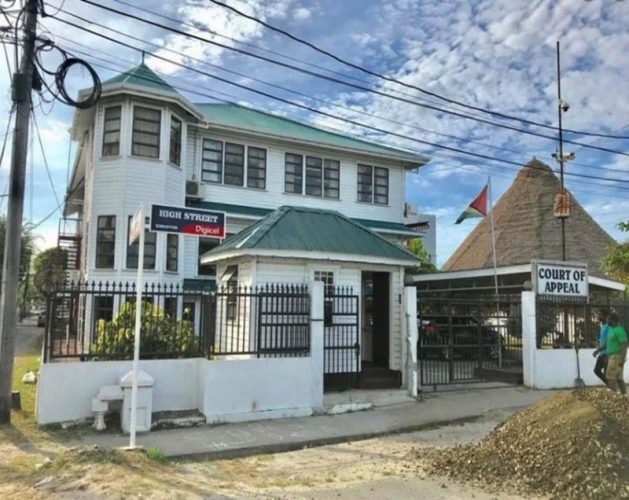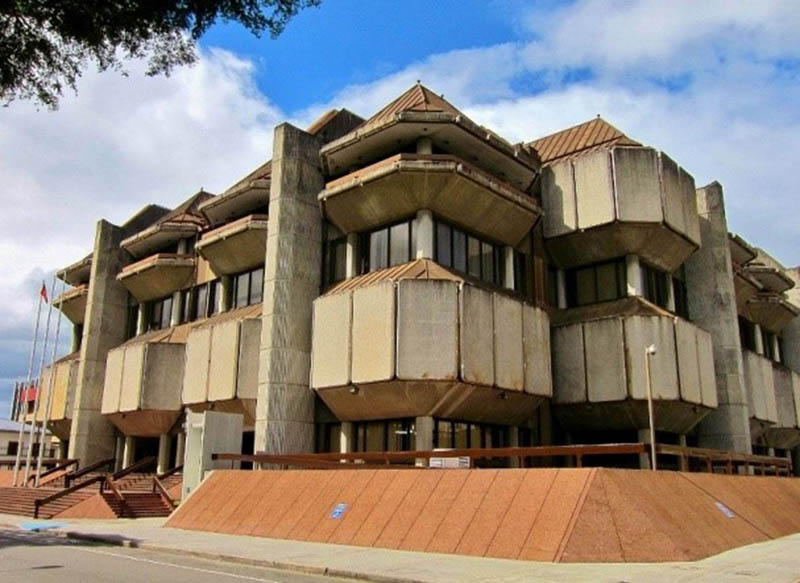Following a ruling by the Trinidad Court of Appeal a month earlier, murder-accused Joel King of the twin-Island Republic became the first person on March 25th, to be granted bail on a capital offence in a hundred years.
Like other jurisdictions in the Region, being granted bail for murder is unprecedented, which was what made King’s motion to be granted pre-trial liberty a unique one.
Naturally, the ruling attracted its fair share of attention—some—criticisms, as had been the case when sister CARICOM country Guyana, also saw the appellate court for the first time since, granting bail to a murder-accused back in 2008.

The case in Trinidad comes well over a decade after Guyana’s locus classicus on the issue, but the grounds raised by the accused in each, bear striking similarities and brings to the fore again, the age-old concern of the length of time murder accused have to wait for their trials. More often than not, for no fault of theirs.
In a decision rendered on February 17th, the Trinidad Court of Appeal ruled that prohibiting bail for persons accused of murder was unconstitutional.
The Trinidad Guardian had reported that Chief Justice Ivor Archie and Appellate Judges Mira Dean-Armorer and Malcolm Holdip found that Section 5(1) of the Bail Act of 1994, which previously precluded judicial officers from considering bail for persons accused of murder, was unconstitutional and needed to be struck down.
The appeal panel ruled that Section 5(1), which previously precluded judicial officers from considering bail for persons accused of murder, was unconstitutional and was not reasonably justifiable in a society that is concerned about the rights and freedoms of the individual.
More than a decade earlier, these would be considerations featuring prominently in the ruling of the Guyana Court Appeal affirming the decision of then Chief Justice (ag) Ian Chang, who gave weight to Article 153 of the Constitution of Guyana by which he noted he was empowered with the discretion to safeguard the fundamental rights of an accused.
Prosecutorial error
It was against this background that Justice Chang said he was granting bail to the accused who had not only been on remand for eight years awaiting trial, but also on the ground that the delays in the case, had been occasioned through no fault of his own, but by prosecutorial error.
The then Chief Justice made it clear that the accused should not have been made to so suffer at the hands of the State.
Justice Chang in his May 2008 ruling had also cited in his ruling Article 139(4) of the Guyana Constitution which provides for bail.
Importantly that Article provides for bail, especially where the accused “is not tried within a reasonable time.”
Justice Chang further went on to declare that the Constitutional right of the accused to a hearing within a reasonable time pursuant to art 144(1) had also been contravened by the State.
He had underscored that an accused is entitled to a presumption of innocence until found guilty by a court and should therefore not have to wait “unconscionable lengths before being brought to trial.”
Article 139(4) on which Justice Chang had relied, also provides in Guyana for conditions to be attached to the grant of bail in such cases.
The subsection states among other things, “…he shall be released either unconditionally or upon reasonable conditions, including in particular such conditions as are reasonably necessary to ensure that he appears at a later date for trial or for proceedings preliminary to trial.”
In Guyana, most murder-accused spend no less than five to seven years on remand before their trial starts in the High Court. For that full period, they remain remanded.
“This court is satisfied that with the imposition of appropriate conditions attached to bail, coupled with the requirement for a surety, it can effectively mitigate the State’s fear that this Applicant will fail to surrender to custody,” the Trinidad Guardian had quoted High Court Master Nalini Singh, who upheld King’s bail application as saying.
Singh applied some 21 “strict conditions” for King’s bail the Trinidad Guardian had reported, including ordering him to report to the Belmont Police Station twice weekly; to reside at his mother’s home at Rigsby Street, in Belmont, and not leave there between 6 pm and 6 am unless it is for an emergency.
He was ordered to not contact or communicate with State witnesses or come within 100 feet of them and was barred from operating a licensed or PH taxi, from visiting a bar or restaurant selling alcohol and from attending parties.
He was ordered to remain in Trinidad and was told that he could not be found on a boat or airplane. If any of the conditions are breached his bail would be immediately revoked.
In her decision, Singh noted that while the nature and seriousness of the offence would provide a greater incentive to avoid attending court, such considerations cannot be the sole factor in considering whether he should be granted bail.
“I accordingly conclude that the nature and seriousness of the offence is just one consideration to be weighed in the balance and not by itself a ground for refusing bail,” Singh said, as she noted that she also had to consider King’s criminal record before being charged with the crime and his social ties.
The Trinidad appeal panel had ruled that Section 5(1) of the Bail Act of 1994, which previously precluded judicial officers from considering bail for persons accused of murder, was unconstitutional.
The appellate Bench had ruled that the segment of the Bail Act was not reasonably justifiable in a society that is concerned about the rights and freedoms of the individual.
Core judicial function
“The unanimous view of this panel is that, by removing the jurisdiction of High Court Judges to grant bail to persons charged with murder, Section 5 has trespassed on a core judicial function,” the Guardian reported Chief Justice Archie, as saying.
The Office of the Attorney General (AG) of Trinidad & Tobago had applied for the High Court judgment to be stayed pending its final appeal to the United Kingdom-based Privy Council but it was denied.
According to the Guardian, the AG’s Office is now expected to pursue the suspension application before the Privy Council.
In the Guyana case, Chief Justice Chang had granted bail to a Mahaica, East Coast Demerara man who had been in court for eight years awaiting trial for two counts of murder. The motion to release the man, Hemchand Persaud, was filed by his then lawyer Sandil Kissoon.
Persaud and Rohan Singh had been charged with the April 2000 murder of James Sancharran and six-year-old Afraz Khan.
In upholding Justice Chang’s ruling, the Guyana Court of Appeal had found that the provisions of the Constitution displaced the common law practice in relation to bail for persons charged with murder and that Article 139(4) placed no limitation nor created any exception to the categories of criminal offences to which it applied.
It said that the submission that the accused ought not to have been released on bail since he had been charged with murder and murder had never been a bailable offence at common law marked a failure to appreciate the well-constructed approach of the Chief Justice, having found a breach of Article 144(1), to fashion relief while bearing in mind at the same time the need to balance the infringement of a constitutional right against the public interest in the attainment of justice.
The local appellate court had said that moreover, to ignore the provisions of Article 139(4) of would mark a failure to recognize the supremacy of the law of the Constitution.
The Court did caution, however, that the particular case was attended by peculiar facts and circumstances.
There had been criticisms from the Executive and Legislature that the ruling would have opened the flood gates for bail applications from murder accused.
The appeal court did caution in its ruling, however, that “Each case had to be considered on its own merits and apart from the complexity of the case, the length of delay, the conduct of the prosecution and accused, regard had also to be had to the availability of institutional resources, systemic delays in the court system and the existing court backlog together with social and economic conditions,” all had to be considered.
In all of the circumstances, however, the Court found Justice Chang’s decision to have been “logical and well-reasoned;” while noting that no injury had been done to the public interest. Accordingly, the State’s appeal was dismissed.
The case in Guyana had not been appealed further to the Trinidad-based court of last resort—the Caribbean Court of Justice (CCJ).
While the seat of this Regional court is in the twin-Island Republic, Trinidad has itself only signed onto its Original Jurisdiction.
All of the island’s criminal appeals, however, still go before the UK-based Privy Council for final determination.






